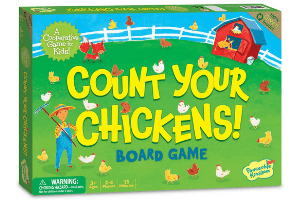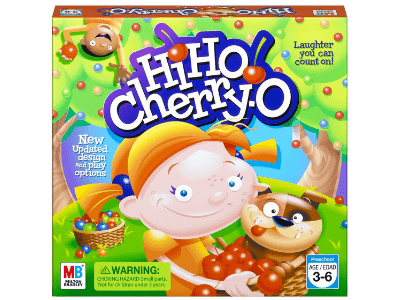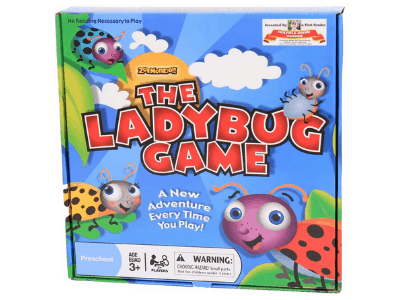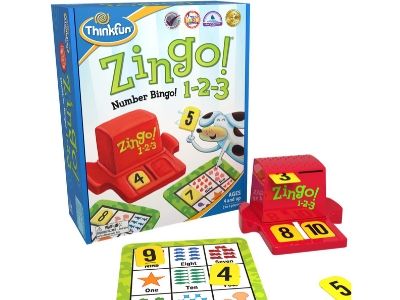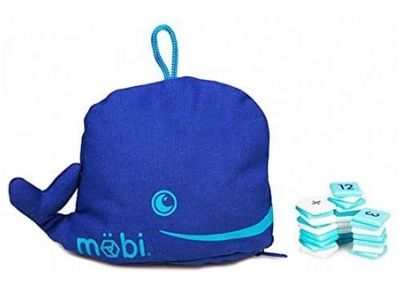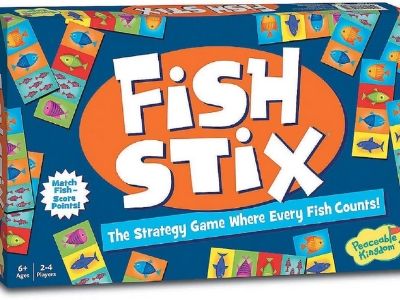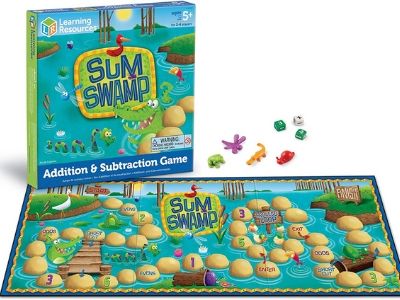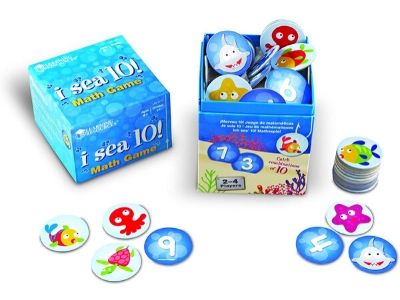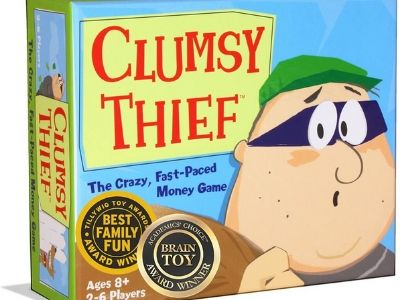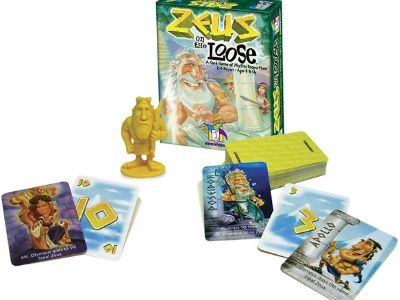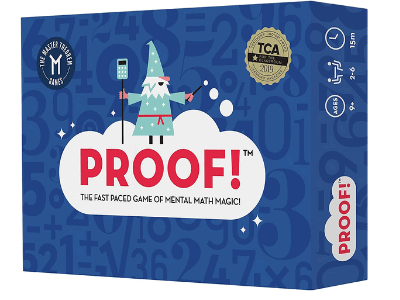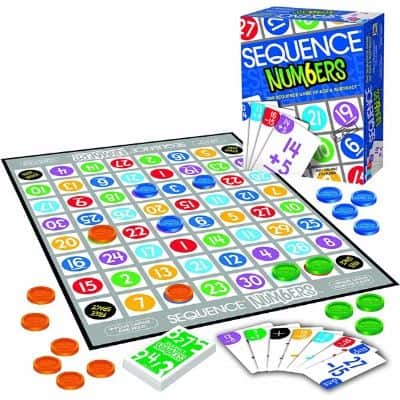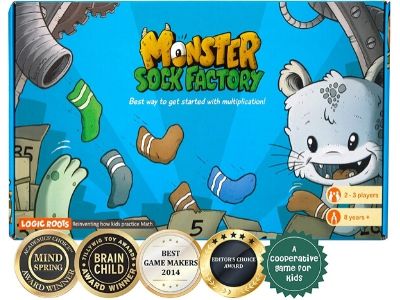15 Best Math Board Games for Kids
Give kids math workbooks, and they might welcome you with a grumpy frown or two. Give kids board games that teach math skills, and your young students will join the fun in a heartbeat.

Teaching young kids problem solving and math processes from the book can sometimes be tedious. However, with a little creativity and fun, you can make math easy to learn!
Whether you’re a parent having a hard time teaching kids math, or a teacher who wants to build math skills the fun way, here are some of the best math board games for kids that your little learners will love!
Math Board Games for Preschoolers
Little kids are never too young to learn math. In fact, teaching preschoolers math in the early stages of learning can help them identify math concepts more easily!
If you’re looking for engaging math board games for preschoolers, here are some games to check out.
Count Your Chickens
Math Skill Focus: Counting, Pattern Recognition, Problem Solving, Number Recognition, Subtraction
Count Your Chickens can teach your young learners some of the necessary foundations of math, including recognizing patterns, problem-solving, and counting. This math board game for preschoolers takes your kids in a mission of gathering lost chicks back to the coop before the hen arrives.
Using a spinner, kids can move Momma Hen to several places corresponding to the number shown in the spinner. Kids will then gather the chicks equal to the spaces Momma Hen moved.
Count Your Chickens is a fun, cooperative math board game that can include 2 to 4 players!
Hi Ho! Cherry-O
Math Skill Focus: Addition and Subtraction
Do you want to teach addition and subtraction to preschoolers without stress? You can combine both fun and math lessons with the classic game of Hi Ho! Cherry-O. There’s only one objective: be the first to fill the bucket with cherries. Using a spinner, kids will know when to add cherries, and when to remove some.
2-4 kids can play with this board game. Each player has their own tree with 10 cherry fruits. Players will then use the spinner to see how many cherries they can pick out from their individual trees.
If the spinner lands on the 1-cherry slot, the player will have to take out one cherry from the tree and transfer it to their bucket. If the spinner lands on either a dog, spilled bucket, or bird slot, the players need to put the cherries back to the tree. The first one to fill their cherry bucket wins.
Hi Ho! Cherry-O is one of the best math board games for kids that can help you teach math the stress-free way!
The Ladybug Game
Math Skill Focus: Basic Counting, Number Perception
What makes The Ladybug Game one of the best math games for preschoolers? The game combines math concepts with a fun, entertaining story! You can train children’s necessary counting skills and number and image perception without them knowing it!
The Ladybug math board game can be played by 2-4 players. The objective of the game is to help the ladybugs reach home. Each player needs to draw a card from the card deck to determine the spaces they would move. Along the way, kids will be able to gather aphids to save lazy ants. The first one to reach the ladybugs’ home wins.
The Ladybug Game will make your kids practice their mathematical abilities sans the tantrums!
First Orchard
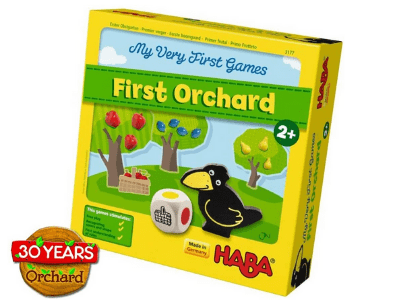
Math Skill Focus: Counting and Spatial Recognition
Can your little math whiz win against the raven? First Orchard helps kids as young as 3 practice their counting and spatial recognition skills. The goal of the game: kids should harvest the fruit before the raven gets to the garden’s gate!
First Orchard comes with dice that will tell players which fruit to get. If a player gets a blue color, they can keep one blue-colored fruit in their baskets. Players have to make sure they get all the fruits before the raven gets in the garden. Best enjoyed by 1 to 3 players.
Harvesting fruit and knowing when they’ve successfully done the harvesting are simple tasks that can hone your child’s developing math skills!
Zingo!
Math Skill Focus: Counting, Number Sense and Word Recognition, Addition
Zingo is a highly-recommended board game that works like bingo with a math twist!
The game comes with a zinger and cards with different images corresponding to various numbers. Kids need to match the number from the zinger to the images on their cards. The first one to check out all the boxes wins the game.
There are two sides to the Zingo boards. The green side is the easier side that focuses on counting and number recognition. For kids who have mastered counting, you can turn the Zingo cards over to the harder side and practice addition. You can start playing the Zingo board game when your kid is in preschool and continue playing it until your kid establishes expertise in number word recognition and addition.
Board Games About Math for Gradeschool Kids
Grade school kids are up for some tough math challenges. Here are some recommendations for the top math board games for grade school kids.
Mobi Math Whale
Math Skill Focus: Addition, Subtraction, Multiplication, Division
Mobi Math comes with a cute whale pouch that contains study number and operations tiles. The easiest way to describe Mobi Math is that it’s like Scrabble, but math. It’s a fast-paced game where the objective is to make simple math equations in a crossword-style grid and the first to finish the tiles wins!
Even though it’s recommended for ages 6 and up, adults can play the game as well to test out their math skills, making Mobi Math fun for the whole family!
We have loved Mobi for a couple of years now. Check out our detailed review here.
Fish Stix
Math Skill Focus: Counting, Graphing and Categorizing, and Pattern Recognition
Fish Stix is similar to a game of dominoes but with colorful fish and a lot more strategy. It’s a matching game where you put down a card with pictures to match pictures next to it, and you get points for lining up the same fish swimming in the same direction. The first one to mark off all of their fish is the winner!
Fish Stix is very simple to learn so even a preschooler may be able to play with some assistance. However, it’s engaging enough that even teens and adults can have fun playing it. If you have multiple kids with different ages, Fish Stix is a great game to educate them about math skills and strategy while playing as a family.
Sum Swamp
Math Skill Focus: Subtraction and Addition
Sum Swamp is a fantastic board game that teaches basic subtraction and addition. The objective of the game is to safely escape the swamp. But there’s a catch – kids can only do it when they answer math drills and challenges right.
Swamp challenges include adding odd and even numbers and subtracting numbers from the dice. The Sum Swamp will surely test your child’s math skills! The game can be played by 2 to 4 players. Best enjoyed by kids ages 5 up!
I Sea 10!
Math Skill Focus: Addition
I Sea 10! is pure addition blitz. The rule of the game is simple: the one with the most number combinations amounting to 10 wins. Two to four players take turns flipping cards and the one that first sees numbers that makeup 10 gets the points! Don’t forget to shout, “I sea 10!”
I Sea 10! is a great supplement for kindergarten and first-grade math curriculum. Your kid will get tons of practice making 10 in different combinations. This simple game is highly adaptable as well, so you can add to different numbers, make it subtraction only instead of addition, or incorporate other math operations.
Be careful of the sharks! When a child gets a shark card, they need to start over! Great for kids ages 6 and up.
Clumsy Thief
Math Skill Focus: Speed Math
Clumsy Thief is a hilarious game designed for speed math! The one who has the most money at the end of the game wins! The main objective – to make stacks of cash equal to $100. You can use your own card stacks or “steal” the money pile by using a money card. This funny game develops your child’s addition and subtraction skills the fast way!
Zeus on the Loose
Math Skill Focus: Addition, Subtraction, Counting in Multiples of 10, Mental Math
The main goal of each player of the Zeus on the Loose game is to be the one in possession of Zeus when the pile of cards (also known as Mount Olympus) reaches 100. Players compete by adding and deducting points from a collection of cards.
Each player gets 4 cards which they will use to make Mount Olympus reach – but not go over – 100. When a player makes the numbers on the cards equal to multiples of 10 – such as using the special Aphrodite card – they get to snatch Zeus.
There are also other power cards representing gods and goddesses. Each deity card has a corresponding power which can round off the total on the cards to multiples of 10, or reverse the amount (example: Hermes card allows you to switch the card total from 35 to 53).
Zeus on the Loose is an awesome face-paced game to improve your kids’ mental math skills.
Proof!
Math Skill Focus: Addition, Subtraction, Multiplication, Division
Proof! is a game that everyone can enjoy and participate in. Proof! will help your kids grow and practice their math skills and creativity as they think and find answers.
The card game can be played by 2-6 players – each player needs to think and see the equations hidden among the nine numbers. If the cards run out and no more equations can be found, the game is over. More equations, more chances of winning.
Sequence Numbers
Math Skill Focus: Addition, Subtraction, Multiplication, and Division
Sequence Numbers is like a giant game of Bingo. Players select a card from their hands and the cards contain equations. The board has a series of numbers that represent answers to the equations on the cards.
Solve all the equations on your card and place your chips on the board. The first one to make a row wins the game. If you like the original Sequence game, you will love this one with math problems!
Monster Sock Factory
Math Skill Focus: Multiplication
The Monster Sock Factory cooperative play helps develop your child’s simple multiplication skills. The objective of the board game is to help the little cute monsters pack enough socks! Players will need to lay down monster cards with a total that corresponds to the number on the center card.
For example, if the center card shows 15, kids can either lay down three cards of 5-legged monsters, or five cards of 3-legged monsters. The one who helped packed the most socks wins!
The Monster Sock Factory is great for multiplication facts and skip counting. It is aligned to common core and Singapore math learning so it’s a perfect gameschooling tool for kids in 2nd grade, third grade and up.
Math for Love Prime Club
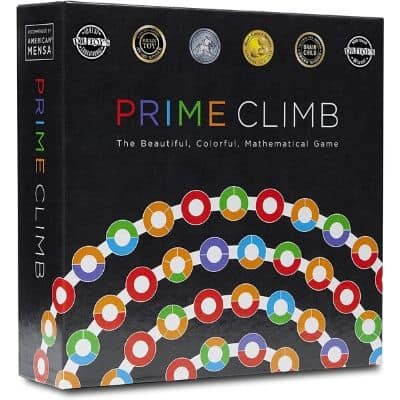
Math Skill Focus: Addition, Subtraction, Division, Multiplication
Math for Love Prime Club is a colorful, beautiful board game for 2-4 players. It’s similar to the classic game of Trouble, but with math built-in.
Using the dice, the objective is to go to the center of the board using addition, subtraction, multiplication, and division processes. The first to get to slot 101 wins the game.
This exciting board game is a great way to make arithmetic facts second nature for our kids. After playing this game repeatedly, our kids can truly master the properties and manipulation of numbers.
Introducing Math Skills By Age
What mathematical exercises should your child practice? Introducing complicated math concepts to young children can make learning math extra frustrating. To help you guide your kids to learning math, here’s a quick guide on the math skills different age groups should have.
Preschool Years (3-5)
The pattern of learning math for this age is understanding concepts based on models and copying. Three-year-olds are in the stage of recognizing and exploring numbers.
Four-year-olds can easily connect math concepts to real-life (“Mom, I want two apples!”) Five-year-olds have necessary arithmetic skills, including simple addition and subtraction.
You can incorporate math in your preschooler’s everyday life by:
- Reading books about numbers together.
- Point out the shapes and colors of things around the house.
- Sorting and counting toys.
- Counting out loud as much as you can.
- Playing some of the best Math board games for preschool kids.
Grade School
Grade school kids have more understanding of the concept of numbers and calculations. At this age, they start to understand more complicated arithmetic and begin to master addition, subtraction, multiplication, division, fractions, and decimals.
You can reinforce your grade school child’s math skills by:
- Teaching with food. A simple lesson about fractions using pizza slices can go a long way.
- Making trips to the grocery store a lesson about adding and subtracting money.
- Asking him to help you calculate simple arithmetic in everyday life.
- Playing board games with math concepts with the family to make math learning fun!
Math can be a complicated and hard subject to teach. Gameschooling with fun math board games can make learning math painless and exciting. Combine fun and laughter with your math lessons, and your kids will be engaged in a heartbeat!
For more awesome board games, check out:
The post 15 Best Math Board Games for Kids appeared first on Mombrite.

